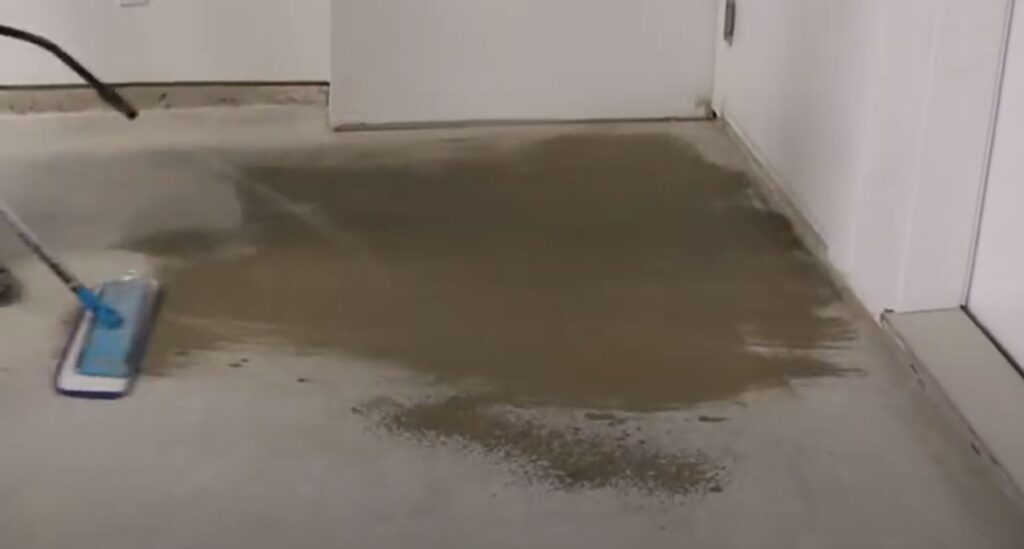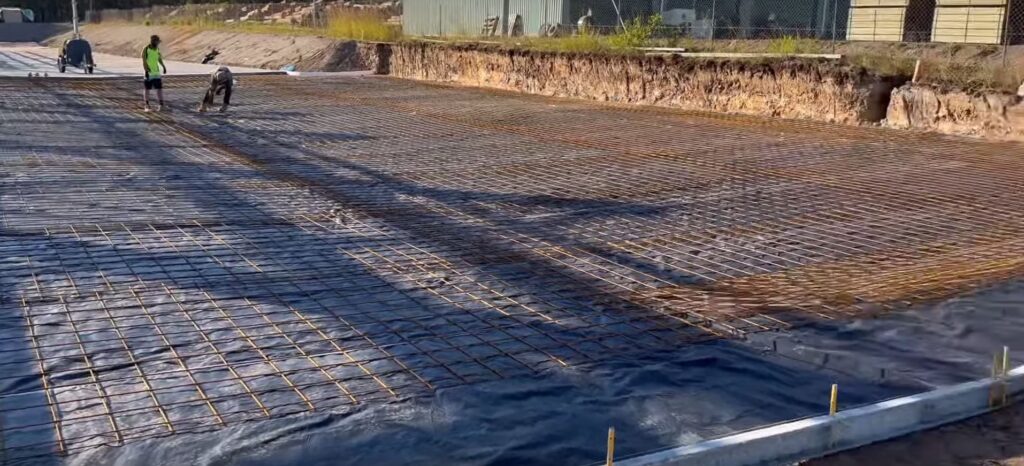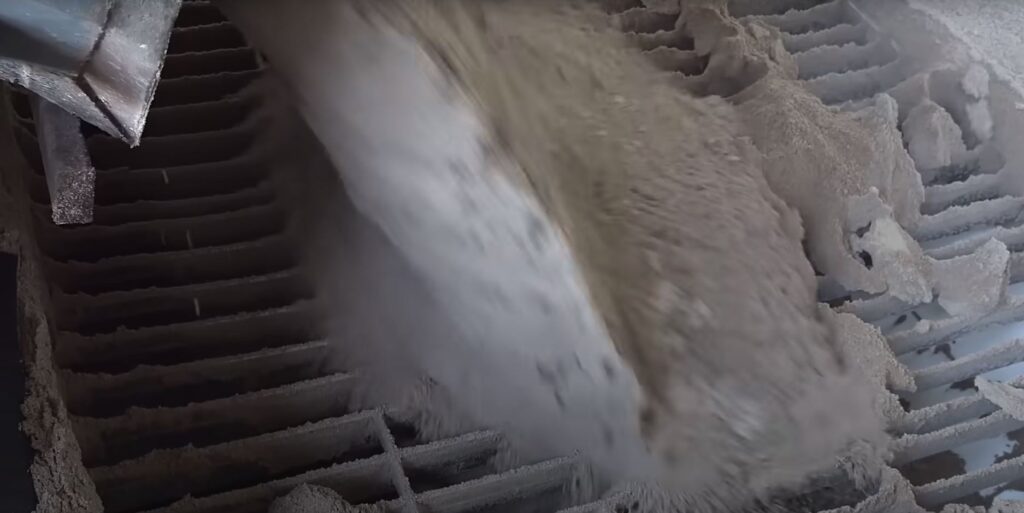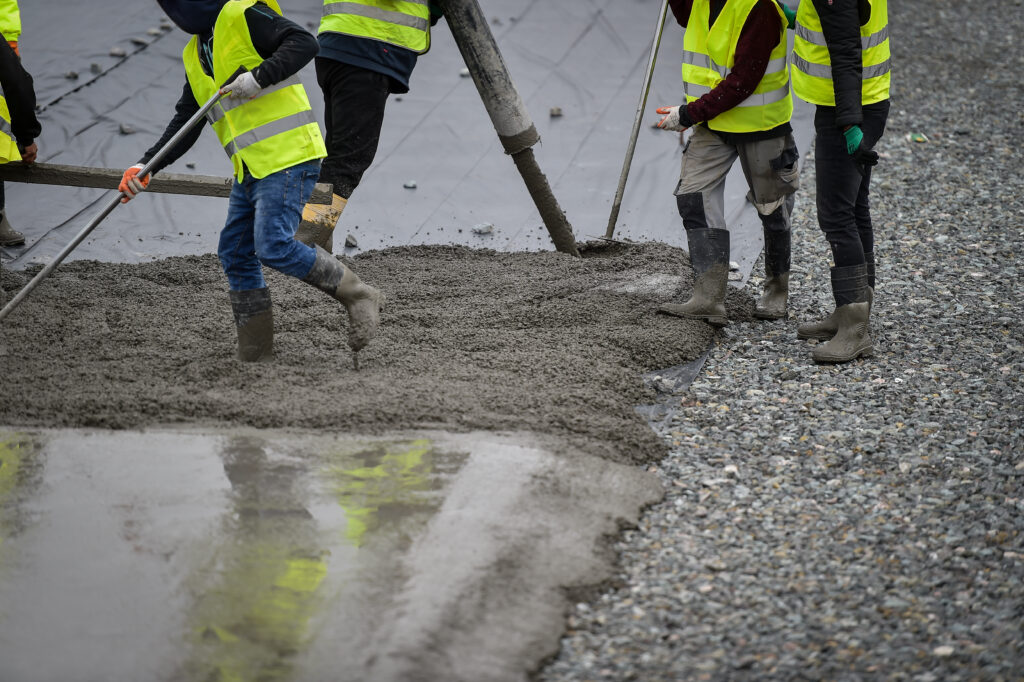Understanding Concrete Hardeners: A Detailed Guide
In the bustling suburbs of Auckland, from the vibrant streets of Mission Bay to the busy areas of Takapuna, concrete hardening is a process that’s crucial in construction. This article delves into the chemicals and methods used in hardening concrete, ensuring its strength and longevity.
Key Chemicals for Hardening Concrete
- Lithium Silicate:
- Primary chemical used for hardening.
- Reacts with calcium hydroxide in concrete to form Calcium Silicate Hydrate (C-S-H).
- Increases concrete’s strength and durability.
- Typically applied via spraying.
- Hydration Process:
- Essential for concrete hardening.
- Involves chemical reactions between water and cement.
- Forms calcium silicate hydrate and calcium hydroxide.
- Continues over years, enhancing concrete’s properties.
Variety of Concrete Hardeners
- Liquid Hardeners:
- Includes sodium
- Liquid Hardeners:
- Includes sodium silicate and siliconate-based compounds.
- Enhances concrete’s density and reduces porosity.
- Used in high-traffic and industrial areas for durability and dust proofing.
Health and Safety in Hardener Application
- Safety Measures:
- Avoid direct skin and eye contact.
- Use protective gear and ensure good ventilation during application.
- Essential to prevent irritation and respiratory issues.
- Professional Application Recommended:
- Engaging with services like Professional Concrete Driveways Auckland ensures safety and efficacy.
- Professionals handle timing, application method, and safety protocols.
Conclusion
Concrete hardening, a key process in the construction world of Auckland, from Mission Bay to Takapuna, is vital for the durability and longevity of concrete structures. Understanding the role of chemicals like lithium silicate, the hydration process, and the variety of hardeners available is crucial for anyone involved in construction or home improvement. Professional application, considering health and safety aspects, enhances the effectiveness and safety of the hardening process. Thus, whether it’s a residential driveway or a commercial floor, using the right hardening techniques and materials, potentially through experts like Professional Concrete Driveways Auckland, ensures your concrete structure is long lasting.
FAQs on Chemical Hardeners for Concrete
What Chemical is Used to Harden Concrete? Lithium silicate is commonly used as a chemical hardener for concrete. It reacts with calcium hydroxide in concrete to form calcium silicate hydrate, increasing the concrete’s strength and durability.
How Does Lithium Silicate Harden Concrete? When applied to concrete, lithium silicate reacts with calcium hydroxide to produce calcium silicate hydrate. This substance fills the pores and canals in concrete, enhancing its strength and surface hardness.
**What Are the Benefits of Using Lithium Silicate in Concrete
What Are the Benefits of Using Lithium Silicate in Concrete?
- Enhances concrete’s strength and durability.
- Improves abrasive resistance and longevity.
- Effectively penetrates and strengthens porous concrete surfaces.
What is the Role of Hydration in Concrete Hardening?
Hydration is a chemical reaction where cement particles transform into a solid, binding material. It contributes significantly to the development of strength and hardness in concrete over time.
Are There Other Chemical Hardeners Besides Lithium Silicate?
Yes, there are various liquid hardeners like sodium silicate and siliconate-based compounds. Each type offers unique benefits in terms of density, porosity reduction, and resistance to wear.
How Do Liquid Hardeners Improve Concrete?
Liquid hardeners enhance concrete strength, make it less porous, denser, and more resistant to wear and weathering. They also help in dustproofing the concrete surface.
Can Concrete Hardeners Be Used for Residential Projects?
Yes, concrete hardeners are suitable for residential projects, including driveways, patios, and garages, offering enhanced durability and strength.
Are Concrete Hardeners Environmentally Safe?
Most modern concrete hardeners are made from inorganic compounds that are water-soluble and comply with environmental, health, and safety regulations.
Do Concrete Hardeners Affect the Color of Concrete?
Generally, concrete hardeners do not significantly alter the color of concrete. However, some products might enhance the natural color or sheen of the concrete surface.
Is It Necessary to Use Concrete Hardeners for All Concrete Surfaces?
While not mandatory for all concrete surfaces, using hardeners is beneficial for areas subjected to high traffic, heavy loads, or harsh environmental conditions to extend the lifespan and maintain the appearance of the concrete.
What Precautions Should Be Taken When Applying Concrete Hardeners?
- Always wear protective gear to avoid skin and eye irritation.
- Ensure good ventilation to avoid inhaling product mist.
- Follow manufacturer’s guidelines for application and safety.
Can I Apply Concrete Hardeners to Old Concrete Surfaces?
Yes, concrete hardeners can be applied to both new and old concrete surfaces, but the surface may need cleaning and preparation for optimal results.
How Long Does It Take for Concrete Hardeners to Work?
The reaction time varies, but most concrete hardeners start working immediately upon application and continue to react and strengthen the concrete over a period of days or weeks.
Does the Application of Concrete Hardeners Require Professional Expertise?
While DIY application is possible, professional application is recommended for optimal results, especially for larger or more complex projects.
Can Concrete Hardeners Be Used in Cold Climates?
Yes, but it’s important to follow specific guidelines related to temperature during application, as extremely cold or hot temperatures can affect the effectiveness of the hardener.
Are There Specific Types of Concrete Hardeners for Different Concrete Finishes?
Yes, different types of concrete hardeners are formulated for various finishes, such as polished, stamped, or exposed aggregate surfaces, to enhance their specific characteristics.
How Often Should Concrete Hardeners Be Applied?
The frequency of application depends on the type of hardener and the environmental conditions. It’s advisable to consult product guidelines or a professional for specific recommendations.




